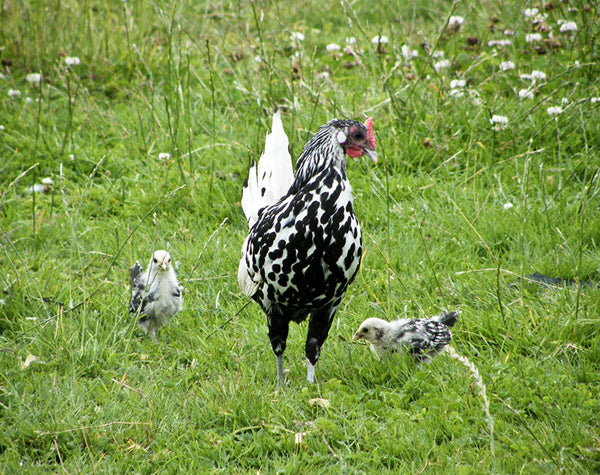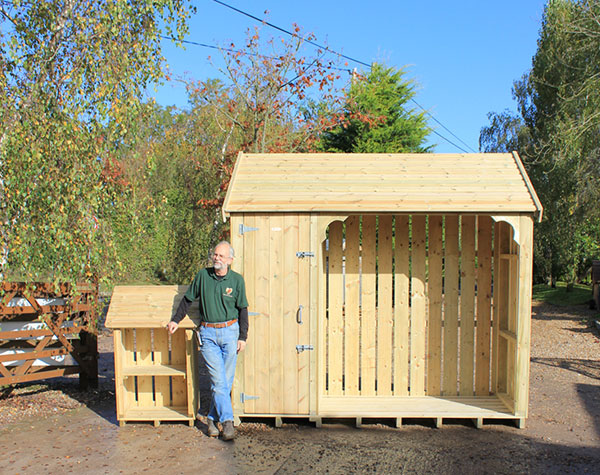Symbols and Recycling
In our modern world of recycling, there are a plethora of symbols and icons - for this, that and the other. Unfortunately, it is not always completely clear as to what they mean.
So here is our quick guide to what some, but not all, of the different symbols on your bottles, trays, plastics and packaging actually mean.
What do the Recycling Symbols mean?

The Mobius Loop is probably the most well-known recycling symbol, gracing everything from bins to drinks bottles.
As a symbol, it indicates that the object is capable of being recycled, not that it has been made of recycled material.
Occasionally, it can be seen with a percent (%) value in the middle to indicate how much of the packaging uses an already recycled material.
This symbol doesn't guarantee the packaging will be collected from your household bins or accepted at recycling centres. You should be able to check with your local council first.

Not technically a recycling symbol, The Tidyman logo is a very well-known icon in the UK and is the trademark symbol of the Keep Britain Tidy charity.
It is an image of a stick figure leaning over a litter bin to drop his rubbish in the bin. The logo is found on a wide variety of packaging and litter bins to instruct the user to dispose of their litter in a designated bin.
It is debatable whether he was first used in the US in the 1950s or whether he was created for the anti-litter Keep Britain Tidy Campaign in 1972. However, it seems he was, in fact, commissioned by the Keep Britain Tidy group at that time. He has become rather a cultural icon in the UK.

The Green Dot is about sorting and recycling packaging. Confusingly, the Green Dot does not mean that the packaging is recyclable. It indicates that the producer of the packaging has contributed to a packaging recovery scheme.
It is widely recognised in European countries, and compulsory in some. This symbol indicates that the producer has joined the Green Dot Scheme, a European scheme where businesses make financial contributions towards recycling.
Although The Green Dot is a protected trademark in the UK, it does not generally have much meaning for UK consumers.

The Plastic Resin Codes identify the type of plastic used to make the item indicated by the number contained within the Mobius loop.
The symbol will have a digit in the centre with letter codes underneath. The 1. PET, for example, indicates the product is made from Polyethylene Terephthalate which is a widely recycled plastic - mainly used in single-use plastic bottles.
Another example is 4. LDPE (Low-density Polyethylene). This is a flexible plastic used in plastic bags. Your local council will always be able to advise how to recycle these products.
Plastics are more recyclable than ever today, with most homes now able to put more plastic packaging into their recycling bin.

Recycling your Glass Bottles and Jars. This symbol (using the Tidyman pictogram) inside the Mobius Loop indicates that the glass bottle or jar can be recycled in a designated bottle bank.
Depending on your local council rules, you should sort by bottle colour. If you have a household glass recycling bin, the bottle should be placed in there. Make sure you wash out the inside first.
Only certain types of glass are recyclable so do check the symbol e.g. it does not include crockery, drinking glasses or light bulbs.

The Aluminium symbol is a circle of arrows with 'alu' in the centre.
It indicates that the item is made of recycled aluminium and can usually be recycled at a local recycling point or in a household recycling bin.
The items most commonly showing this symbol are drinks cans, aerosol cans and aluminium foil.
Approximately 40% of aerosol cans are made of aluminium so check for the symbol and your local council guidelines. Aluminium foil, which includes food trays and bottle caps, should be cleaned before adding to recycling.

Most paper, like brown paper, magazines, and computer paper, can be recycled in your paper recycling bin.
The Paper symbol is awarded by the National Association of Paper Merchants (NAPM) to indicate they have approved the product.
It indicates the paper or cardboard has a minimum of 50%, 75% or, is 100% genuine waste paper or board fibre.
This does not usually apply to hygiene products, foil-based gift wrap, sticky paper, greaseproof paper or wallpaper, for example.

The Compostable symbol is an entwined leaf with the word compostable underneath. Known as the 'seedling' symbol.
Items that carry the Compostable Packaging symbol can usually be recycled through your garden waste collections.
However, they should not go into your normal household waste as they are designed to break down in specific composting conditions rather than be recycled.
Products with the Seedling symbol will fully biodegrade in an industrial composting plant under controlled conditions. Check with your local authority guide.
The Compostable logo is a registered trademark of European Bioplastics. It means that the products are certified to be industrially compostable according to the European standard EN 13432/1495.

The Recycle and the Don't Recycle labels show whether the packaging, lids, bags or other materials can be recycled or not.
The labels are applied to packaging which is widely collected for recycling, or cannot be recycled.
The Recycle label, for example, is applied to packaging that can be collected for recycling.
It may also show if the item needs rinsing, needs the lid left on, can only be recycled at supermarkets and so on.
The Don’t Recycle label is applied to items that aren’t collected by local councils because they cannot be sorted. It can also show that you should remove the sleeve or film from the main packaging.
For more Recycling symbols and their details visit the website RecycleNow.com
Recycling Bin Storage
Are you wondering how to hide your Recycling Wheelie Bins and Boxes?
Flyte so Fancy's Recycling Storage Range can provide the solution. From Single 240L Bin & Recycling Storage through to Quad Bin Stores to suit an array of Wheelie Bins. Or take a look at our large Bin Stores for 360 litre, 660 litre and 1100 litre Commercial Wheelie Bins.
Made in Britain and built to last - About our Wheelie Bin & Recycling Stores.



